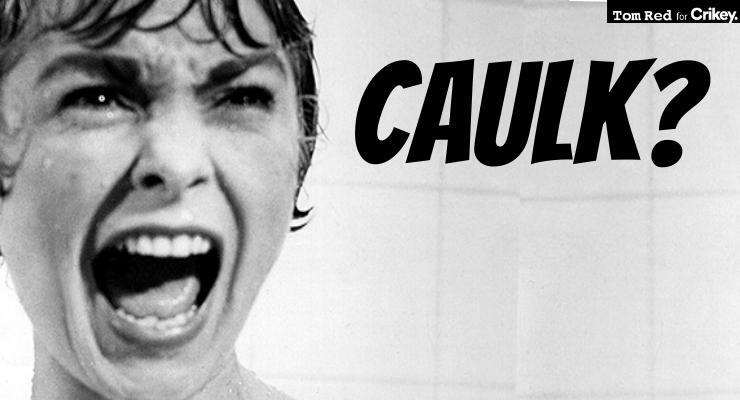
Yesterday was the day Australia and much of the English-speaking world was divided into those who have caulked a shower and those who have not.
No idea what I’m talking about? The five-letter word “caulk” (meaning “a waterproof filler and sealant, used in building work and repairs”, according to Google dictionary) was “wordle” #242 on Wordle, the popular web-based word game recently acquired by The New York Times. And the people were not happy.
Since early in the year Twitter has basically had a constant trending hashtag where people bemoan or brag about their performance on Wordle.
Caulk left a lot of people frustrated, ending months-long winning streaks for some and starting a small-scale Twitter war between homeowners and renters. (Although shout-out to Crikey’s Amber Schultz, who has caulked her rental shower — winner of the renter of the year award.)
Think the outrage is confined to Twitter? Oh no, you’re wrong. Caulk was the most-searched word or phrase on Australian Google yesterday, beating out a fatal shark attack and Prince Andrew’s settlement for the top spot.
The spike of searches could be considered evidence of something that much of the web seems to be in consensus about: that since The New York Times acquired the word game for a tidy seven-figure sum, the words have been getting harder.
The NYT says this is just a “coincidence” — and, look, I believe it. If someone told me to write down every five-letter word I know I would start with the easy ones (write, start, elbow, for example) and then move on to the caulks, cynics and knolls of the dictionary later in the piece.
Anyway, the beautiful thing about Wordle is that, winning streaks aside, every day is a new opportunity to show that when it comes to trending online word games, you’ve got your shit together. And while it may have taken me six to get caulk yesterday, today I wrote this whole snippet just to say publicly that I got wordle #243 in one go.








Ignorance of the word caulk suggests that people are really moving away from what used to be normal life to something a bit less organic.
No intention of going down that rabbit hole myself.
Just another example of how deracinated are most urbanoids in the 21stC – when tradies drive automatic utes the End is nigh.
Anyone who has messed about with wooden boats would know ‘caulk’ – see https://youtu.be/jM6R81SiKgA
My only issue is that I thought it was less likely than ‘baulk’. Other than that, caulk is a perfectly cromulent word. I’ve never caulked a shower either, but I know what caulk is, as should most people.
Perfectly fine word, caulk. But now I had to look up cromulent…… 🙂
oops, sorry to repeat Jimbo, yours was below the fold, so to speak.
I used to run a shipwrights workshop, if this helps to explain why caulk is not a strange word.
All wooden plank hull boats have the seams of the planks sealed by a mixture of hemp and linseed oil gently at first inserted into the planks initially with loops still hanging out and then the seams are packed tight.
A wooden mallet and caulking irons of various lengths from tacking to sealing.
A very old word, although i think I have heard it used when applying putty to wooden frames around the glass.
No doubt you also used baulks of timber when crafting the vessels.
Never heard of “caulking a boat”?
We used to do it all the time on the Endeavour.